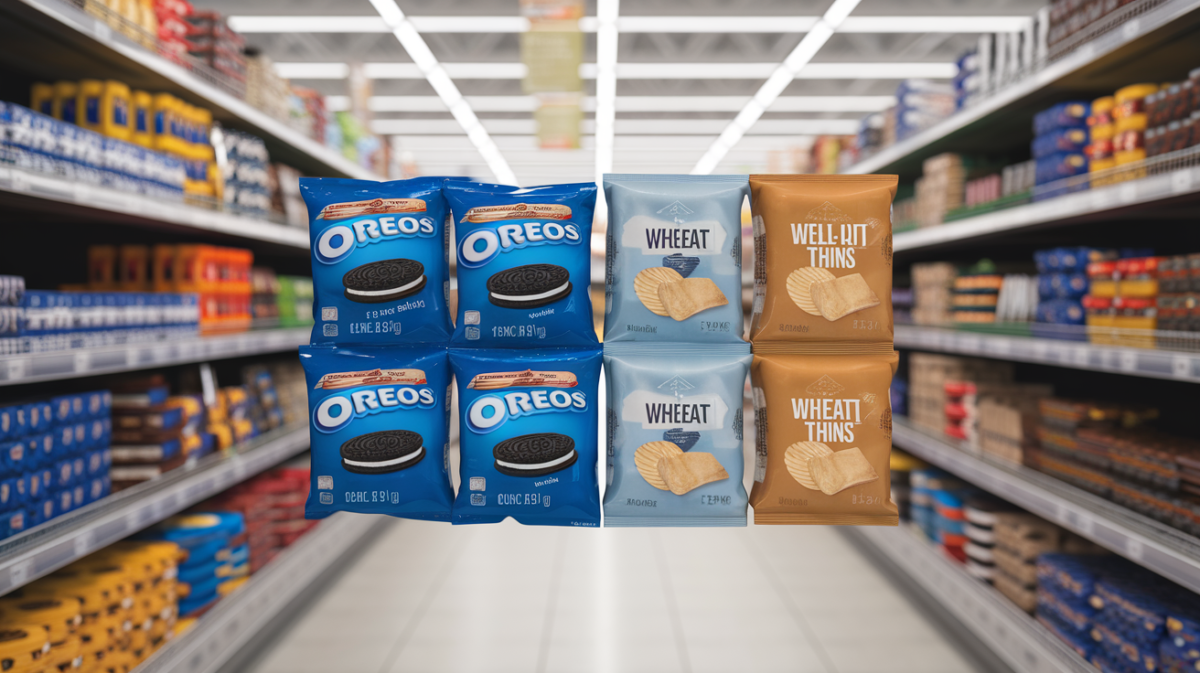Mondelez International, the global food giant behind iconic brands like Oreo, Chips Ahoy, and Wheat Thins, has filed a federal lawsuit against discount grocery chain Aldi. The lawsuit alleges that Aldi’s store-brand products mimic Mondelez’s packaging designs, potentially confusing customers and infringing on trade dress rights. The legal battle, filed in Illinois, highlights a growing trend of retailers facing scrutiny over packaging similarities.
The Lawsuit: Key Allegations
Mondelez claims that Aldi’s packaging for products like Thin Wheat crackers and chocolate sandwich cookies bears a striking resemblance to its own brands. The company has provided side-by-side comparisons in court documents, arguing that the similarities are not coincidental but intentional. According to Mondelez, this mimicry could mislead shoppers into believing they are purchasing Mondelez products, thereby harming the company’s brand reputation and sales.
The lawsuit seeks monetary damages and an injunction to stop Aldi from selling the allegedly infringing products. Mondelez’s legal team asserts that Aldi’s actions violate trade dress laws, which protect the visual appearance of a product or its packaging when it serves as a source identifier.
Aldi’s History of Packaging Controversies
This is not the first time Aldi has faced legal challenges over its packaging practices. The grocery chain has a history of offering store-brand products with designs that closely resemble well-known national brands. Some notable cases include:
- 2024 Australian Ruling: An Australian court found Aldi liable for copyright infringement over its Mamia Baby Puffs packaging, which was deemed too similar to the rival brand Little Bellies.
- 2015 King’s Hawaiian Lawsuit: Aldi was sued by King’s Hawaiian for packaging its sweet rolls in a manner “confusingly similar” to the Hawaiian brand’s distinctive design.
- UK Cider Case: In the UK, a court ruled that Aldi’s Taurus cider packaging unfairly resembled Thatchers’ cider, leading to an injunction against Aldi.
Consumer Reactions and Ethical Debates
Aldi’s strategy of mimicking national brands has sparked mixed reactions. Some shoppers appreciate the cost savings, as Aldi’s store-brand products are often significantly cheaper than their name-brand counterparts. Others, however, argue that the practice blurs ethical lines and undermines consumer trust.
For example, Aldi’s chocolate sandwich cookies and crackers are packaged in ways that closely mirror Mondelez’s products, raising questions about whether such practices are fair competition or deceptive marketing.
Comparing the Packaging: Mondelez vs. Aldi
Below is a comparison of the packaging designs at the heart of the lawsuit:
| Product | Mondelez Packaging | Aldi Packaging |
|---|---|---|
| Chocolate Sandwich Cookies | Blue packaging with distinctive Oreo logo | Similar blue packaging with nearly identical font and layout |
| Thin Wheat Crackers | Red and white packaging with Wheat Thins branding | Red and white packaging with a nearly identical design |
Legal Implications and Industry Impact
The outcome of this lawsuit could set a precedent for how courts handle similar cases in the future. If Mondelez succeeds, it may encourage other brands to take legal action against retailers whose packaging closely resembles theirs. Conversely, a ruling in Aldi’s favor could embolden other discount chains to adopt similar strategies.
Experts suggest that the case underscores the fine line between offering affordable alternatives and respecting intellectual property rights. “This isn’t just about packaging—it’s about brand identity and consumer trust,” says a legal analyst specializing in trade dress cases.
What’s Next?
As the lawsuit progresses, both companies are expected to present detailed arguments. Mondelez will likely emphasize the potential for consumer confusion, while Aldi may argue that its packaging is distinct enough to avoid infringement. The case could take months or even years to resolve, depending on court schedules and potential settlements.
For now, shoppers may want to take a closer look at the packaging of store-brand products to ensure they’re getting the brand they intend to buy.
Conclusion
The Mondelez vs. Aldi lawsuit highlights the ongoing tension between brand protection and retail competition. As discount chains like Aldi continue to grow, their packaging strategies will likely remain under scrutiny. Whether this case leads to stricter enforcement of trade dress laws or a shift in how store brands are marketed remains to be seen.
For consumers, the takeaway is clear: always check the label, not just the packaging.







